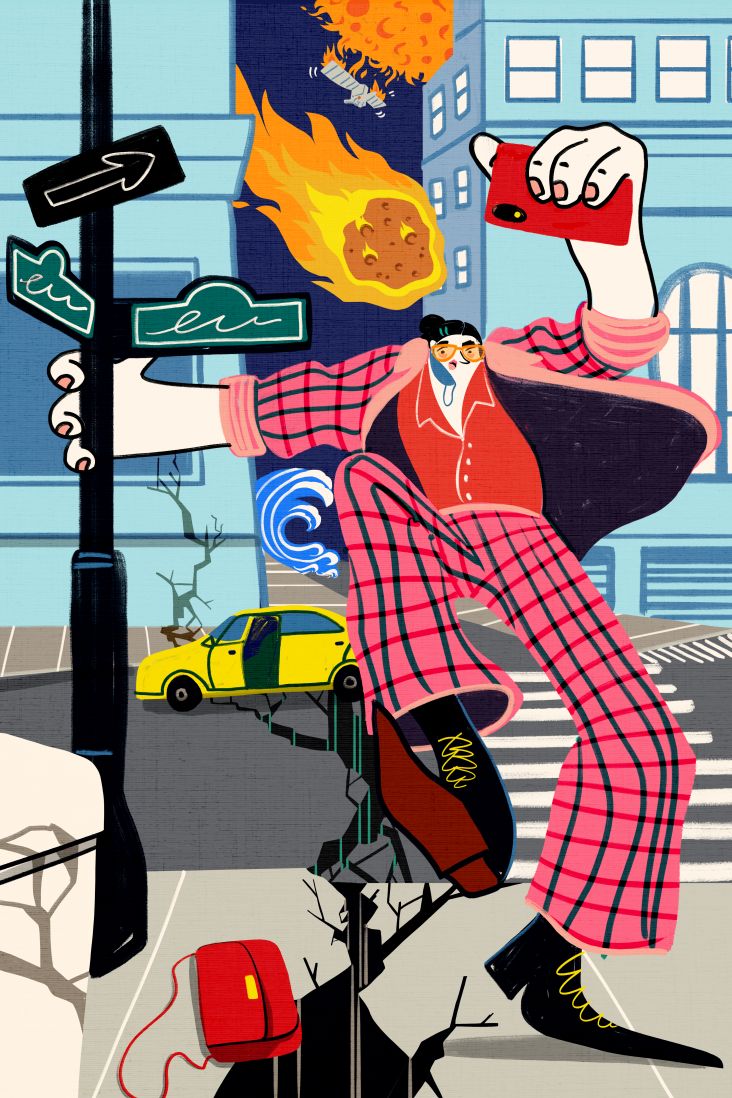Ben Eli's liberating practice and the importance of creative freedom
With community and inclusivity at the core of what they do, Ben Eli's practice is flexible, somewhat transient and resistant to being put into a box. "I definitely feel the pressure to 'find' my style and stick to it, but for me, that feels quite boring," Ben explains, wanting the ability, and more importantly, the freedom, to change lanes.
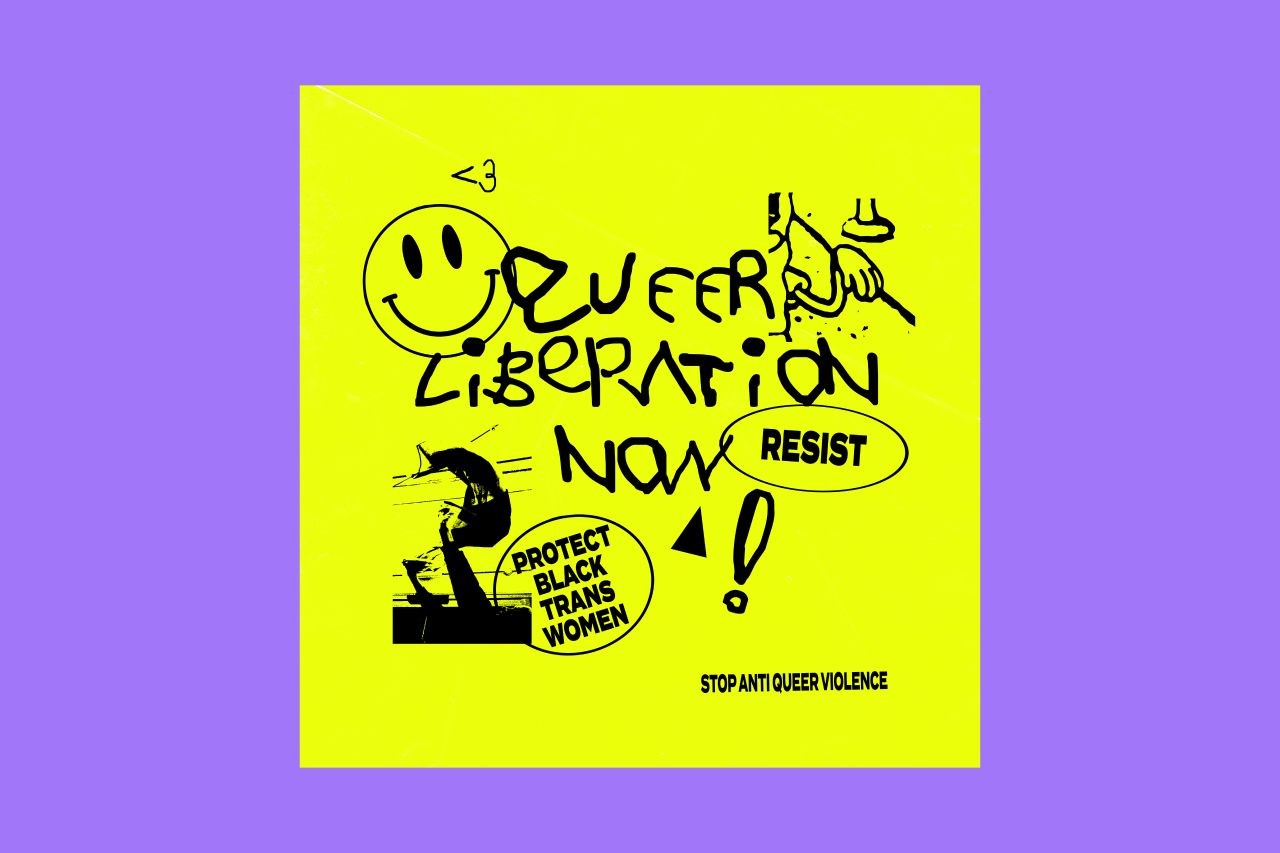
Ben Eli, Queer Liberation Now, 2020
That being said, Ben's approach is grounded and driven by a deep typographic understanding, both in how they apply their knowledge and their enormous appreciation for the significance it carries. In this, Ben's work finds its home when empowering others and whilst steering clear of rigid expectations. "More recently, I realised that I also just want to have fun and create fun work," they tell us, adding "a lot of the industry feels very serious."
Perhaps this is where the strength of Ben's work lies; tackling topics serious and close to them with a poignant mix of playfulness and sincerity. An attitude not too far removed from a significant source of inspiration, Pop Music. "I'm a huge pop music fan, and I'm always fascinated by the world-building by the likes of Gaga and Madonna," Ben explains, thriving in the significance of story and concept throughout their music, videos and tours, as well as the fashion displayed throughout. "It's all about creating an experience for their community/fans," they add, "there's an essence and energy in there that I try to bring into my practice."
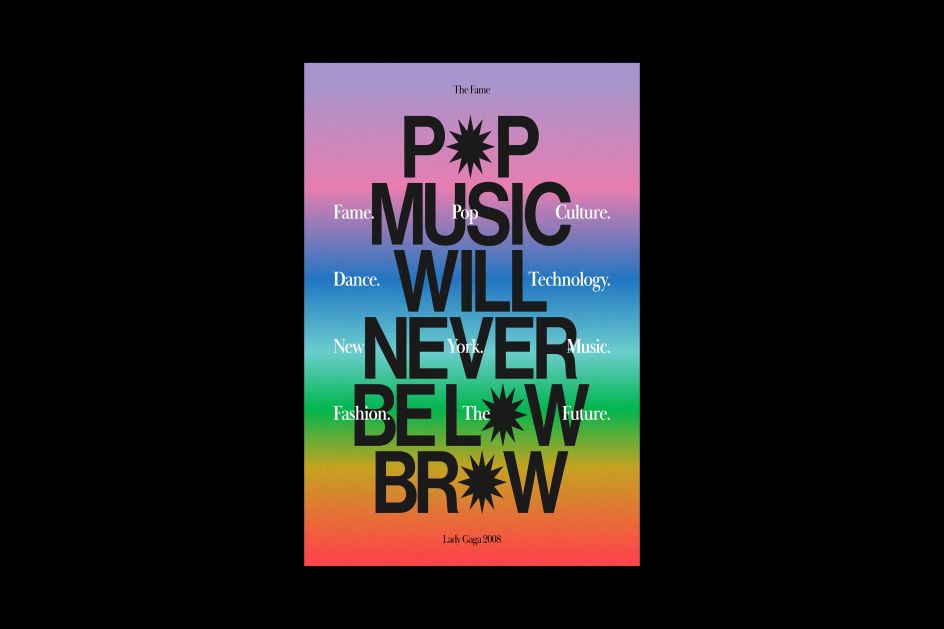
Ben Eli, Pop Music Will Never Be Low Brow, 2021
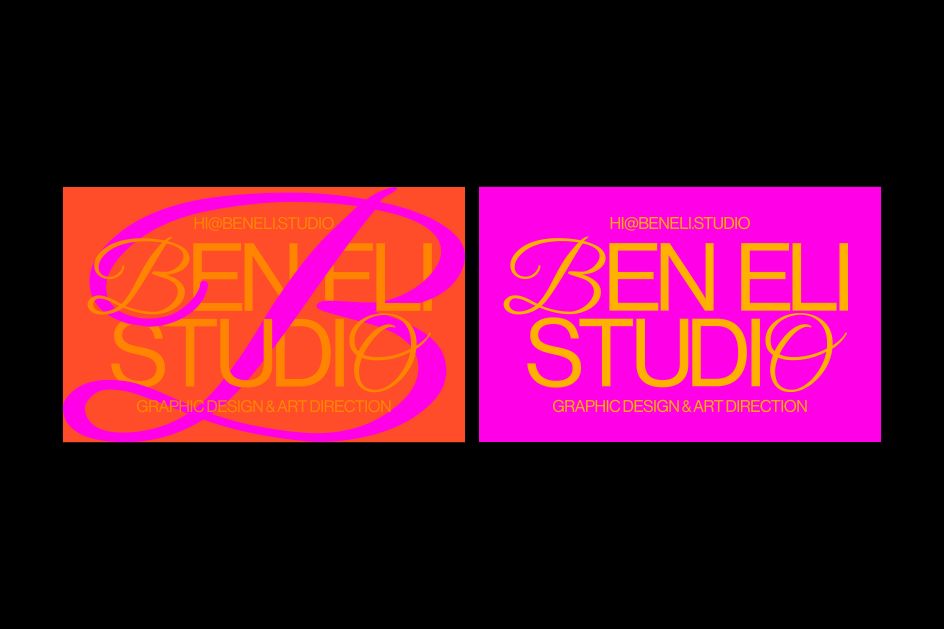
Ben Eli, Ben Eli Studio, 2021
Alongside their adoration for Pop is further momentous influence from Popular Culture and LGBT+ culture and history, manifesting prominently in printed materials – something seen in the ephemeral and tactile tone of their work, even in a flat and digital space. "One thing I miss the most about the pre-Covid world is trawling through bookstores and flicking through fashion magazines or art books," Ben recalls, suggesting 'No Sleep: NYC Nightlife Flyers 1988-1998' by DJ Stretch Armstrong and Luis Venegas' 'Candy Magazine' – a celebration of the communities found in Transgender, Gender Nonconforming, Non-binary and Drag societies. "I find myself reaching for these a lot," they add, "whether it's for art direction and typography inspiration or for research into history and stories that inspire me on a more personal level."
In Ben's words, the result of this is work that feels quite "loud and brash", the inevitable concoction of thematically appropriately rule-breaking and the "excessiveness of Pop Culture" they are inspired by. In total contrast to the minimalism of their practice all but a few years ago, Ben attributes this glorious transcendence of raging colour and questioning to the acceptance of their identity. "I definitely want it to feel queer, be unapologetic and take up space," they add. This attitude is ever-present in their work, brimming with character and interrogation.
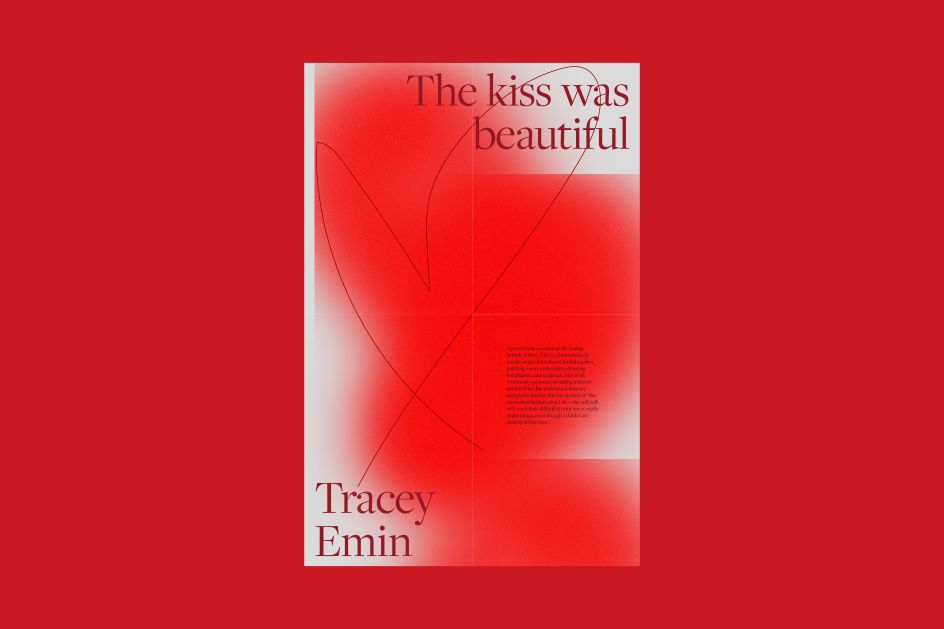
Ben Eli, Tracey Emin – The Kiss Was Beautiful, 2019
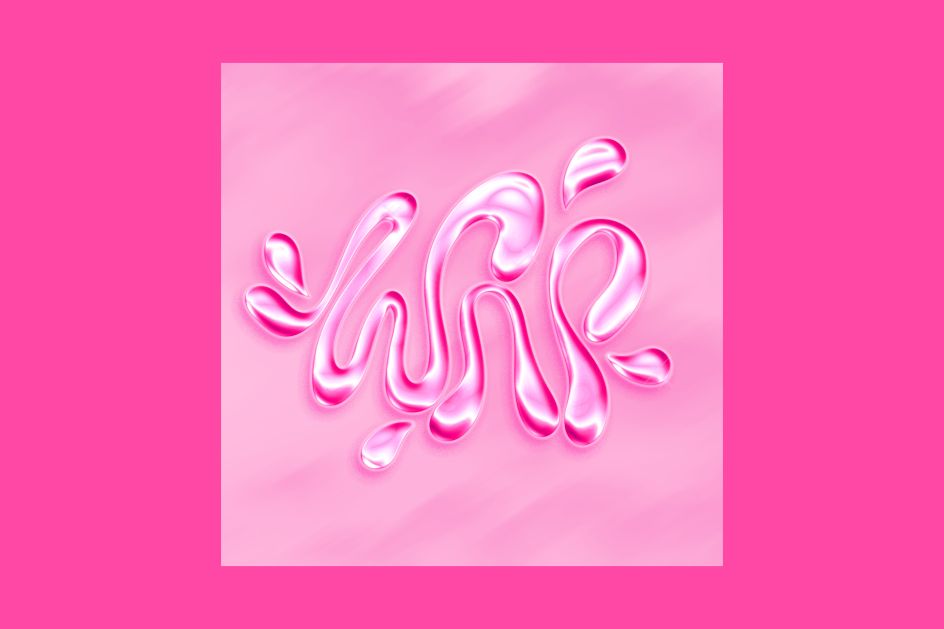
Ben Eli, WAP, 2020
Keeping inspired is top of Ben's priority list right now; achieving as much by looking at where they can push the expected and accepted. "At the moment, I love mixing different typefaces," they add, "stretching type, and just breaking all the type rules I worked so hard to learn whilst studying."
Depop may seemingly have been the unlikely source of inspiration to this drive. Having worked there from 2017 and subsequently working into their rebrand, Ben recalls the freedom granted at the company, despite its scale. "I can't tell you how much I was able to play, experiment and push and pull things to see what worked, what didn't, and what we liked," Ben explains, enjoying the revisiting and the improvement one could execute whilst working in-house. "Depop has such an engaged community, and I took a lot of pride in creating work with and from them," they tell us, "it taught me a lot about the importance of building community and empowering people.
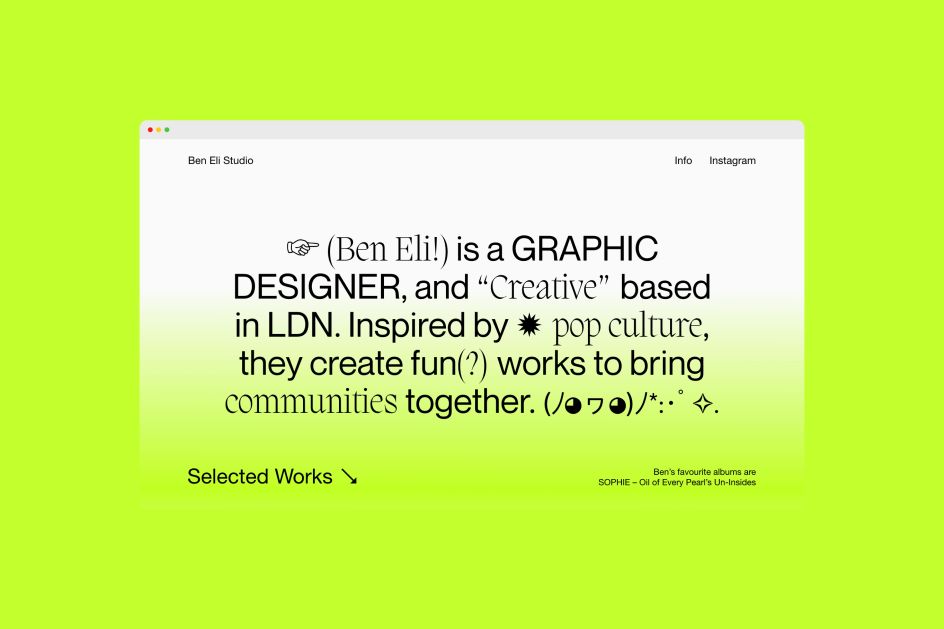
Ben Eli, Ben Eli Studio, 2020
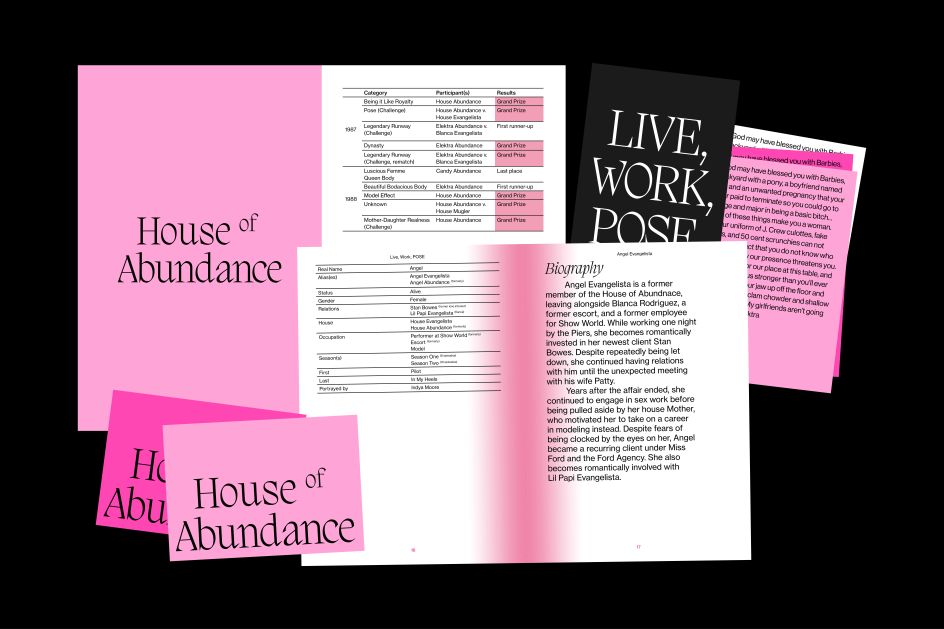
Ben Eli, Live Work Pose, 2020
Having since moved into London-based creative agency Livity, Ben has since learned to work across the multitude of levels across a design agency, dealing with clients, projects, budgets, plans and everything in-between. Learning also not to be too precious, they explain "it can all change so quickly the next day, and you have to keep pushing it," adding, "it really helps to stay open to that change, but also if you have a strong, collaborative, team foundation it is much easier to navigate."
Due to both the experience they've gained and the limited free-time available for having a full-time job, Ben is now much more selective with the freelance work they take on. "I use those as an opportunity to supplement my practice," they explain, "and do things I am passionate about and align most with my values," giving room for the creative satisfaction granted from personal work.
A recent highlight of Ben's personal work is their on-going project Queer Liberation Now!, a very significant piece that registers profoundly with their identity. "I made it in response to the epidemic of violence the LGBT+ community faces daily," Ben explains, "especially towards Black trans women."
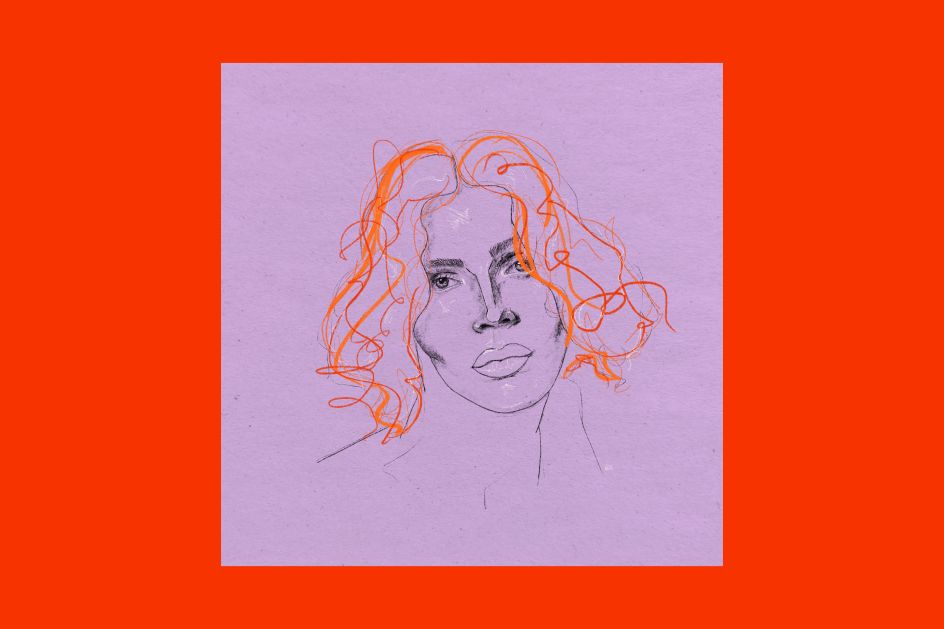
Ben Eli, Portrait of Sophie Xeon, 2021
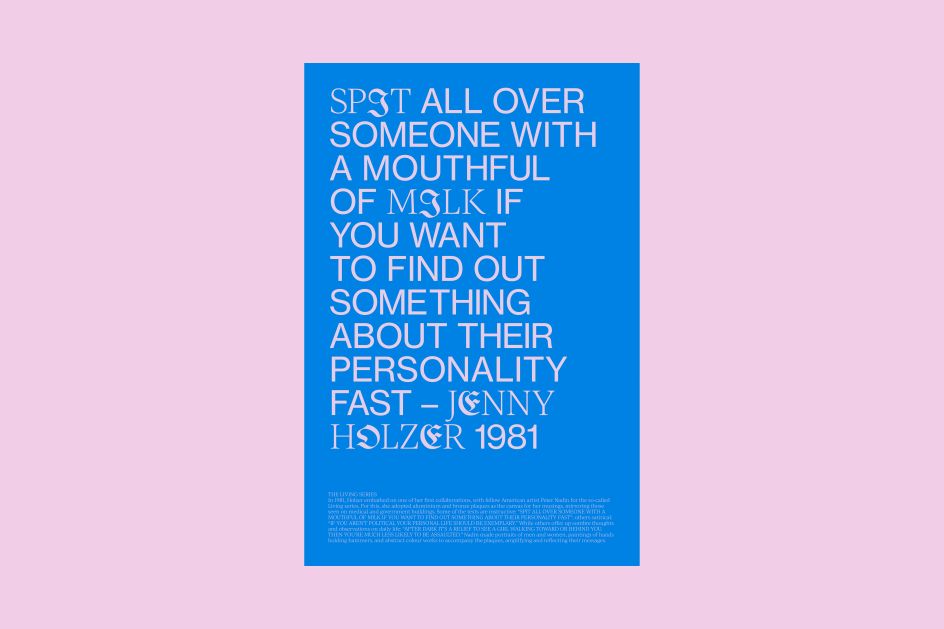
Ben Eli, Jenny Holzer, 2019
Beginning as something to help "uncloud" their thoughts, Ben never initially intended it to be shared but then considered how often work on this topic is seen. "I realised in the creative industry, how often do we get to see work demanding the protection of our community?" they explain, "a piece directly calling for the safety of Black Trans Women?" Thinking they would fall into the same traps we all do when sticking to your own echo chamber, Ben shared it and was met with a welcoming crowd.
Inspired by the ephemera found at protests, as well as activist Marsha P Johnson, Ben tells us "I wasn't focused on creating something compositionally beautiful," adding "it was purely about the essence, the feeling, and the individual parts and what each one means to me."
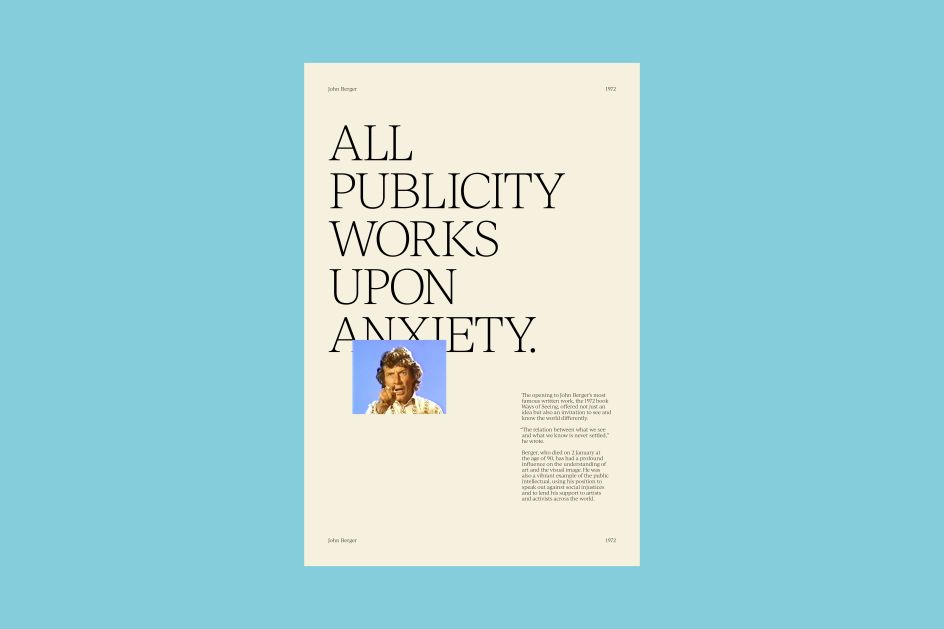
Ben Eli, John Berger Ways Of Seeing, 2019
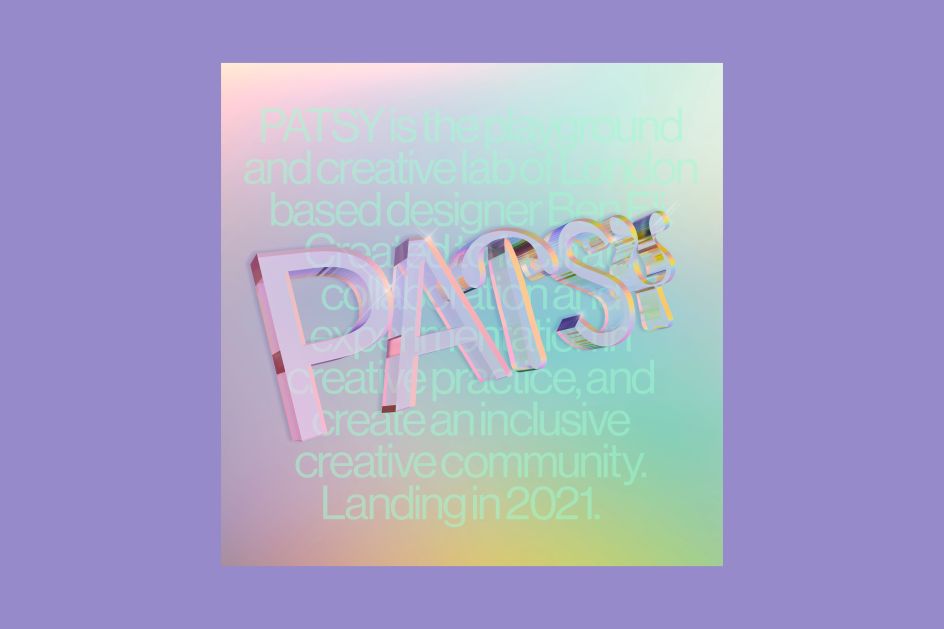
Ben Eli, Patsy, 2021
As is the case for many, the past year for Ben has been one of reflection and re-evaluation. Taking into consideration the values they hold dear to them, Ben explains, "I truly want to spend my time doing, and what makes me happy," whether that is getting stuck into their personal practice or working on the editorial design, they really miss getting their teeth into. "I'm also playing around with the idea of starting my own practice, PATSY (named after my Grandma!)," Ben explains; a project that would be centred on creative experimentation and collaboration. "This is inspired by the time I would spend growing up at her kitchen table drawing, painting and finding my creative side," they explain, wanting to use PATSY as an opportunity to develop further and research their side projects.
What Ben's studio could provide, which the industry so truly needs, is greater representation, using it as a platform to "collaborate with my peers, especially other queer, black or POC creatives," Ben tells us. "So I'd like to direct my practice into fostering a new sense of community and celebrate our work."




 by Tüpokompanii](https://www.creativeboom.com/upload/articles/58/58684538770fb5b428dc1882f7a732f153500153_732.jpg)

 using <a href="https://www.ohnotype.co/fonts/obviously" target="_blank">Obviously</a> by Oh No Type Co., Art Director, Brand & Creative—Spotify](https://www.creativeboom.com/upload/articles/6e/6ed31eddc26fa563f213fc76d6993dab9231ffe4_732.jpg)









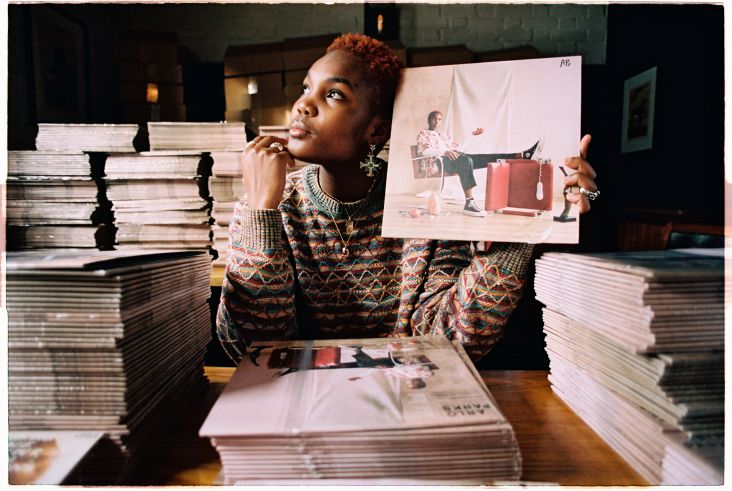
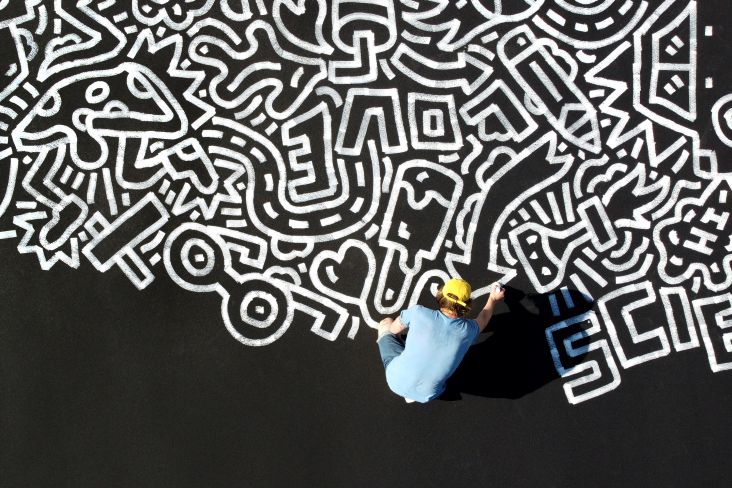
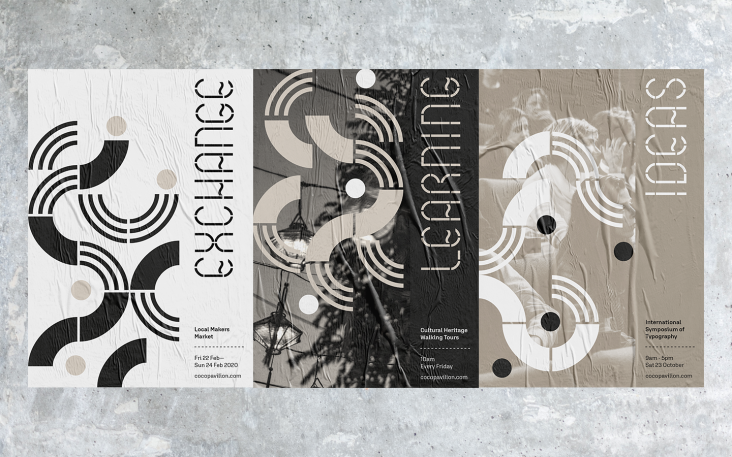
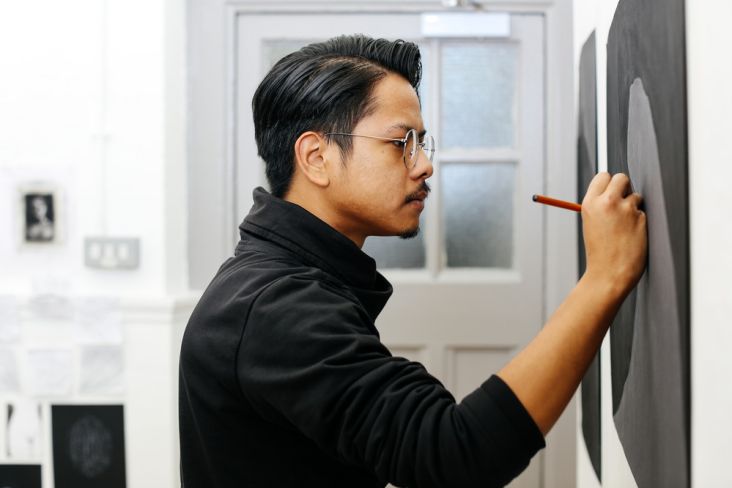
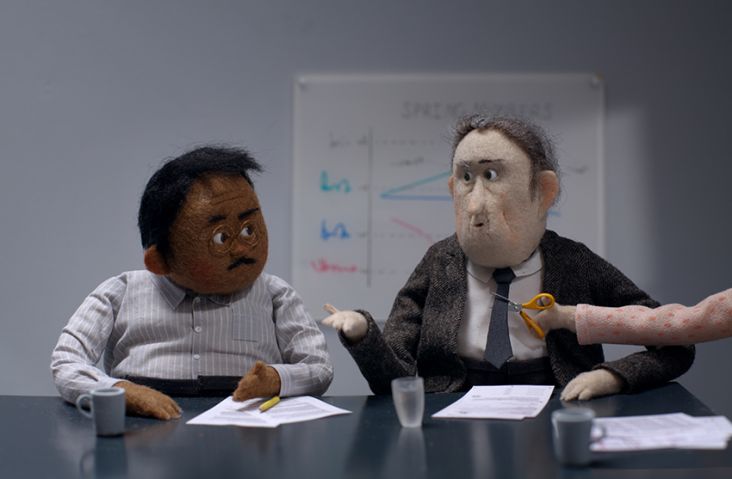
](https://www.creativeboom.com/upload/articles/58/582451020813fcd5ac2d0e70e52d028fdc16a819_732.jpg)
